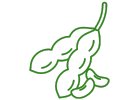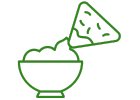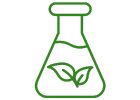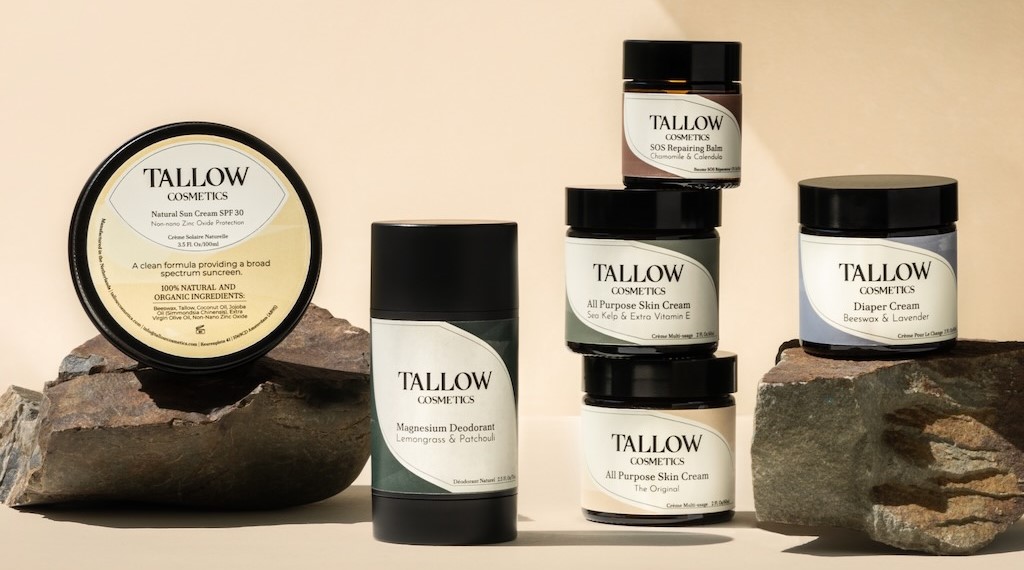Ceylon Wild Turmeric čerstvý - sbíraný a sušený v době sklizně - 30 g

Za nákup Vám přičteme:
+119.5 Bodů do Bonusového programuWhy buy
Ceylon Kokonati introduces you to the golden spice, turmeric. Ceylon turmeric has been grown naturally in Ceylon gardens since ancient times. Carefully harvested turmeric rhizomes are dug up with wooden sticks, dried in the sun and ground into this powder.
Sri Lanka, known as the Spice Island, was historically attractive to Western nations because of its abundance of spices. This love basically continues to this day.
Ceylon turmeric adds rich colour, warm, earthy flavour and subtle complexity to any dish - soup, stew or curry.
Depending on the harvest and the season, each batch of Ceylon turmeric may vary in colour and to a lesser extent taste, as it is a natural product without any synthetic substances, refining, additives or preservatives.
These unnecessary substances are commonly used to standardise the product in large-scale commercially grown and heavily processed spices.
Benefits of Ceylon turmeric
Turmeric is a well-known spice that has been used for centuries in Ayurveda as a disinfectant, antioxidant and for its anti-inflammatory properties. Turmeric is even said to relieve indigestion and relieve stress!
To enhance the effects of its bioactive compound curcumin, it is best to take turmeric with pepper. Piperine (contained in pepper) is a natural substance that enhances the absorption of curcumin.
- turmeric is rich in antioxidants that improve immunity and gut health
- may positively affect blood pressure levels
- helps to calm and soothe, reduces inflammation and even anxiety
- can help reduce the progression of degenerative diseases such as arthritis
Ingredients
100% Ceylon turmeric from native seeds (heirloom) and in organic quality. It is grown in Ceylon (Sri Lanka).
What is a native (heirloom) seed variety?
A so-called heirloom variety (whether of plants, seeds, fruits or vegetables) is an open-pollinated variety that was commonly cultivated in earlier times in human history, but is not used in modern large-scale agriculture because of the cartel-like behavior of a large corporation like Monsanto, which is behind the destruction of ancient seeds and the food chain in general across the planet.
See the document below. And here is a link to the website of a Canadian university, The University of British Columbia, which explains briefly what it is. If you do not speak English, use the online translator: deepl.com
We have translated this paragraph from the English Wikipedia:
Before the industrialisation of agriculture, a much wider variety of plant foods were grown for human consumption, mainly because farmers and gardeners saved seeds and cuttings for future planting. From the 16th century to the early 20th century, the diversity was enormous.
The old nursery catalogues were full of plums, peaches, pears and apples of many varieties and the seed catalogues offered legions of vegetable varieties. These catalogues were used to sell and trade valuable and carefully selected seeds along with useful advice on growing.
Since the Second World War, agriculture in the industrialised world has consisted mainly of food crops grown on large monoculture plots. Only a few varieties of each type of crop are grown to achieve the greatest consistency.
These varieties are often selected for their productivity and their ability to ripen at the same time and withstand mechanical harvesting and transport across borders, as well as their resistance to drought, frost or pesticides. This form of agriculture has led to a 75% decline in the genetic diversity of crops.
Although heirloom or heirloom cultivation has retained its place in local communities, it has seen a resurgence in recent years in response to the trend towards industrial agriculture.
In the southern hemisphere, heirloom plants are still widely cultivated, for example in home gardens in South and Southeast Asia. Before the Second World War, most of the products grown in the United States were heirloom varieties, but this was abandoned with the arrival of Monsanto.
Other sources of articles:
- The practice of Monsanto and BASF of Germany in pushing dicamba (a weed killer) on American farmers
- The Guardian:Revealed: Monsanto predicted cropping system will damage US farms
In the 21st century, many communities around the world are working to preserve historic varieties so that a wide range of fruits, vegetables, herbs and flowers are once again available to growers by restoring old orchards, sourcing historic fruit varieties, engaging in seed swaps and encouraging community participation.
Storage
- Store in a closed container, away from sunlight and damp environments.
- The strength and taste of turmeric remain unchanged when stored in a closed container without air.
- Ceylon turmeric remains safe for longer than the recommended best before date if stored with minimal exposure to light, air and moisture.
Because turmeric is packed directly at the point of growth, in the region where it is harvested, its freshness is maximally ensured and exposure is reduced from day one until the moment you open the pack.
By purchasing this brand, you will directly support the work of the poorest people on our planet
You pay for quality not quantity
Ceylon Kokonati uses only single origin, ethically harvested non GMO ingredients for their products. Their products are vegan, gluten-free, suitable for keto, paleo and raw diets. They do not contain any refined white sugar.
By buying them, you support traditional livelihoods and reduce your carbon footprint - because the products are produced and packaged right at the harvest site. Ceylon Kokonati strives for 100% zero waste production.
This product is internationally accredited by Control Union, certified organic (EU and USDA NOP), ISO and/or HACCP certified.
Ceylon Kokonati manufactures its products in a family-run sweatshop, pays fair prices to its suppliers and manufacturers, and incorporates generations of knowledge into its production processes.
It uses only the highest quality ingredients. So you can be sure that you are getting premium quality at a premium price. By buying flour, you support the traditional livelihoods of villagers in the dry areas of Sri Lanka.
This allows the villagers to benefit from their years of knowledge and expertise.
The sale of these products plays a vital role in employment and economic support for the village community. Ceylon Kokonati provides the children of its employees with school books and stationery for the entire school year.
Additional parameters
| Category: | Spices, herbs and salt |
|---|---|
| EAN: | 4796010580606 |
| Proč koupit: | Jediná ingredience, balena u zdroje, nikdy žádné příměsi, single-origin, GMO-free, vegan. |
| Vhodné pro: | Keto-Paleo-GMO Free-Vegan-Bezlepková dieta |
| Výrobce: | Ceylon Kokonati |
| Země původu: | Srí Lanka |
Be the first who will post an article to this item!
Be the first who will post an article to this item!
The Ceilon Kokonati brand was established in 2013. In its range you can find a variety of high quality and affordable products made from sustainably produced coconuts, spices and tropical fruits.
The brand's name refers to the country that its founders consider home, Ceylon, Sri Lanka, where the coconuts for the coconut line of products are grown and processed. Ceylon, a British Crown Colony from 1815-1948, is now known as Sri Lanka, but the founders of the brand prefer to call it Ceylon because it definitely sounds more exotic and "pure Ceylon" is a brand in itself, reminiscent of the fresh unique essence of pure Ceylon tea. "Kokonati" on the other hand is Maori for coconut, so absolutely the most appropriate brand name for the most coconutty goodness ever.
The Ceilon Kokonati brand is run by a married couple. The female founding half is Mrs. Bûmika, which means Lady of the Earth in Sanskrit. Her great-grandfather was one of the pioneers of coconut oil pressing in Ceylon, making her the fourth generation of coconut oil presser. The male founding half, Mr. Mosqi, in turn, is originally a pure Ceylon tea grower.
Ceylon Kokonati is wholly owned and operated in New Zealand. Loose products from Kokonati uses several ethical brands that produce clean, organic food and beauty products. By selling Kokonati products, rural communities and traditional livelihoods are supported. All their products are ethically harvested and there is almost no waste in their production. Each part of the coconut is used in the production of a different product. Kokonati products are single-ingredient, packaged directly at the source, never mixed, single-species, non-GMO and vegan.
With a passion for organic, regenerative farming, sustainability and collective partnerships, Kokonati products come only from small farms and mills in rural villages in Sri Lanka. Each Kokonati product is produced in a specialized mill that produces only that type of product. Quality is therefore the best it can be, and every step of production is backed by the experience and knowledge of many generations. Ceylon is blessed with an abundance of healthy, exotic fruits, nuts, herbs and spices.
Ceylon Kokonati follows the principles of balanced living - live and let live.
They're trying to keep everything in even better condition than when they found it..

.jpg)








































































